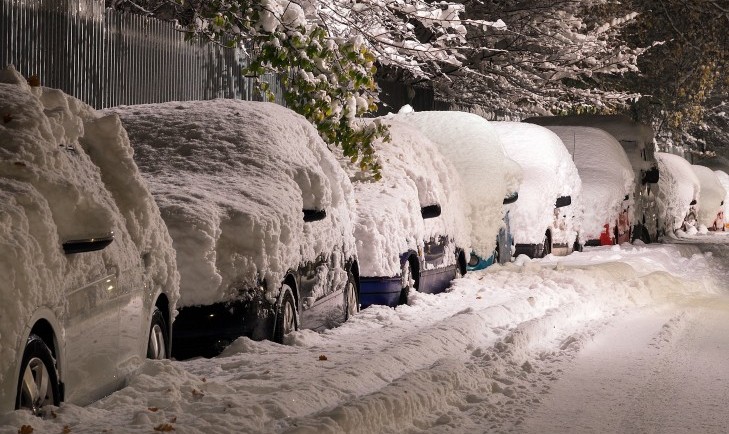
The Western Governors' Association keeps you updated on news of the West. Here are the western stories for the week starting March 11, 2019 that you don't want to miss.
A strong winter storm hit Colorado and surrounding states this week, prompting Gov. Jared Polis to declare a state of emergency. Known as a bomb cyclone, the storm dropped more than 24 millibars, or units of atmospheric pressure, in less than 24 hours. Gusts of wind reached 94 miles per hour, and several feet of snow accumulated in some areas, causing power outages, scores of vehicle accidents and the closure of all runways at Denver International Airport, where 1,300 flights were canceled on Wednesday and another 676 on Thursday.
The “historic blizzard” also swept across Wyoming, Montana, Nebraska, South Dakota and North Dakota, and was described by the National Weather Service as a “Great Plains cyclone of historic proportions.” Dodge City, Kansas dropped to its lowest pressure ever recorded and the 4.2 inches of snow that fell near the Nevada-Utah line on Tuesday broke a 120-year-old record.
Recent storms have also contributed to an “unprecedented” avalanche season. Colorado has recorded 170 slides since Dec. 1, one person was rescued from an avalanche in the Village of Taos Ski Valley in New Mexico on Wednesday, and a search is underway for a Marine after an avalanche in the Sierra Nevada in California. Learn about the science behind the historic slides.
Western Wind Energy: The lowest-cost states for wind farm development are New Mexico, Montana, Colorado and Wyoming, according to an analysis of state taxation policies regarding wind energy in the West by the University of Wyoming. Download the report.
Tourism Uptick: As visitation to Gold Butte rises, Nevada’s newest national monument is preparing for more tourists. The 300,000-acre monument near the Arizona-Nevada state line, which is home to “stunning rock formations and ages-old petroglyphs,” will add new amenities to accommodate a recent influx of visitors.
Here Comes the Sun: A new solar energy project is expected to become the largest in Washington once complete. A Portland-based energy developer is managing the Lund-Hill Solar Project, which “will generate not only clean energy for Washington state residents, but also generate a significant amount of money to fund our schools,” said Washington State Commissioner of Public Lands Hilary Franz.
Invasive Ingredients: To bring awareness to the issue of invasive species in Hawaii, some chefs are taking a novel approach: “If you can’t beat em, eat em.” Integrating invasive plants and animals into their recipes, cooks are educating tourists and locals alike about the invasive crisis.
Get the latest news about the West and its governors by following the Western Governors' Association on Twitter, Facebook and LinkedIn.